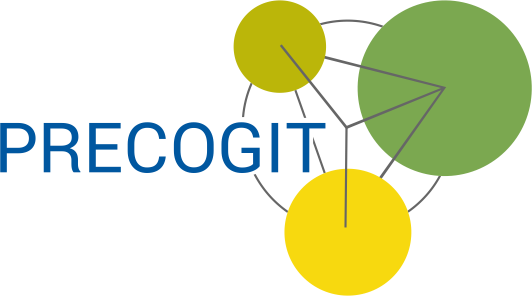If a producer wants to introduce or upgrade an ERP system, then, depending on the size of the company, there is certainly the question of which software provider to realise this project with. As a rule, most tend towards Microsoft business solutions (Navision, Dynamics) or SAP. Today I want to focus on SAP, because I have become an employee of a newly founded company that deals exactly with the topics of my previous blog: Digitalisation of the Process Industry.
At PRECOGIT GmbH, the name says it all. PRECOGIT translates from English as “foreknowledge” or as a verb “foresighted knowledge”. From Latin, “pre cogitare” translates as “thinking ahead”. The vision of the two company founders is the digitalisation of the process industry with SAP process modules thought out in advance – mainly the brewing and beverage industry due to the personal expertise of the two. What particularly excited me was the idea of thinking ahead from the process and not thinking and living classically in SAP modules. The past has shown that at the end of the intermodular competence of an SAP consultant, there was still a lot of room for improvement in the solutions that were put into production there.
For example, one of the founders told me about an experience at a building materials producer. Originally, the SAP in operational logistics was only developed with the modules SD (Sales and Distribution) and MM (Materials Management). In order to map the process of loading at the handling unit level, a loading monitor was created in the customer’s own namespace (Z*), which can create handling units on a delivery document, pack them and carry out the goods issue posting. When, over time, the WM (Warehouse Management) module was introduced at more and more locations, which can process the interaction with handling units and delivery documents with standard customising, the old loading monitor had to be operated additionally – because it was the group standard and active behind every delivery – and the functionality in WM had to be neutered so that no side effects appeared. This is at least one negative example that shows why it pays to work process-oriented.
Before creating its process modules, PRECOGIT thinks about which modules are affected in the business process and creates intermodular solutions based on this. What is special at this point is the requirement to create continuous and functional process modules that can be used by the customer from the very first minute. The advantage here is that the customer has the opportunity to mirror his reality on the basis of the preconceived process, regardless of whether he has an old SAP system or would like to become a new SAP customer. Of course, these pre-conceived processes will not correspond 100% to those of the future customer, but due to the industry and technology expertise of PRECOGIT, a 60 to 70 percent coverage of the customer’s needs will certainly be achieved. The points that are missing for the customer can be questioned and specified, so that in the end a customised solution is created on the basis of the pre-conceived process modules.
All in all, their concept was so convincing for me that I am now happy to become part of this team. I will continue my blog – certainly somewhat more influenced by my impressions from everyday work.

